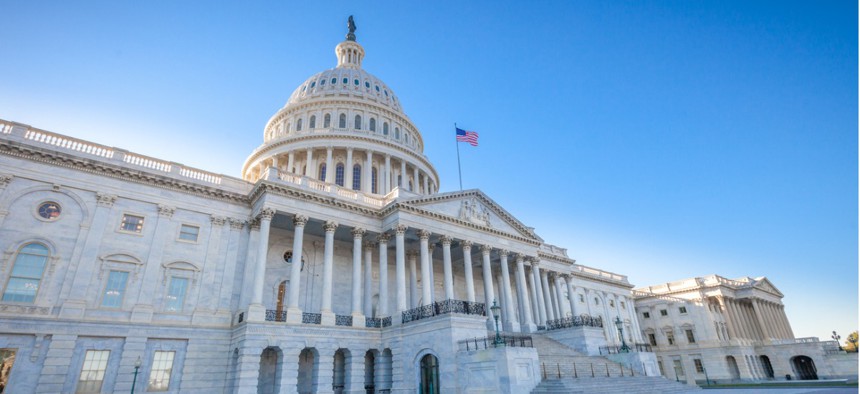Experts Examine Accountability, Transparency Improvements in Government

dkfielding/iStock.com
The House Committee on Oversight and Reform hearing discussed recent proposals to strengthen the authority of inspectors general and place some limits on acting officials.
With trust in the federal government at near-record lows—just 20% of U.S. adults trust the government to “do the right thing,” according to Pew Research Center—House lawmakers examined legislative reforms Monday that might help restore public confidence.
The House Committee on Oversight and Reform hearing coincided with the recent introduction of several pieces of legislation that would strengthen inspectors general, enhance whistleblower protections, and increase transparency into government programs and personnel.
The IG Independence and Empowerment Act, for example, would ensure IGs could only be removed for cause. Introduced in April by Oversight and Reform Chairwoman Carolyn Maloney, the bill mirrors recommendations the Government Accountability Office made in June 2020 after President Donald Trump removed four high-profile IGs.
“To do this job well, inspectors general must be confident they will not face retaliation if their findings are not flattering to agency or political leadership. The law does not currently prohibit that kind of retaliation, leaving our top internal watchdogs open to political interference,” Liz Hempowicz, director of public policy at the Project on Government Oversight, said Monday.
Hempowicz was one of several public policy experts providing testimony on various legislation, which included three bills that could directly impact federal employees.
The Periodically Listing Updates to Management, or PLUM Act, would modernize what is commonly referred to as the Plum Book. The publication, published by the Senate Committee on Homeland Security and Governmental Affairs and the House Committee on Oversight and Reform, contains information on more than 9,000 federal civil service leadership and support positions across the executive and legislative branches.
“The Plum Book, as I stated earlier, is grossly outdated at times and is not reflecting the most accurate information,” said James-Christian Blockwood, executive vice president of the Partnership for Public Service. “A fundamental part of accountability is transparency, so if the American public does not know who is filling a position it makes it hard to know who is making decisions on their behalf and who can hold them accountable.”
Rep. Katie Porter, D-Calif., used Monday’s hearing to attempt to drum up support from Republicans for the Accountability for Acting Officials Act, which she formally introduced Tuesday. She previously introduced the bill last session, though it didn’t receive Republican support. Porter said she’s been shopping the legislation around in recent weeks and is “yet to find a Republican to co-lead the bill,” despite a history of bipartisan support for the accountability of acting officials. The bill would shorten the length of time acting agency heads can lead, require acting officials to testify once every 60 days and require IGs to have relevant experience.
“We’ve talked about how this issue of making sure we have qualified officials is a bipartisan one, both because it’s about making sure government is effective, guarding against taxpayer dollars, protecting the constitutional say of Congress,” Porter said. “And it’s always historically been bipartisan.”
Maloney also used her opening statement to advocate for the Whistleblower Protection Improvement Act. The legislation, introduced Tuesday, would enhance existing protections for federal employees who uncover government waste, fraud or abuse.
“This bill—I couldn’t encourage the Congress to pass it more. It addresses some of the biggest loopholes and most consequential loopholes in our whistleblower laws today,” Hempowicz said.
NEXT STORY: Quick Hits






